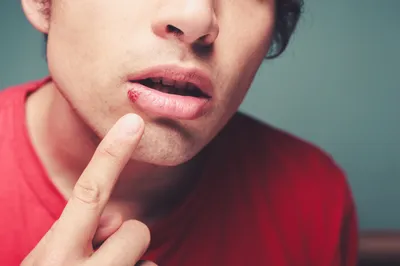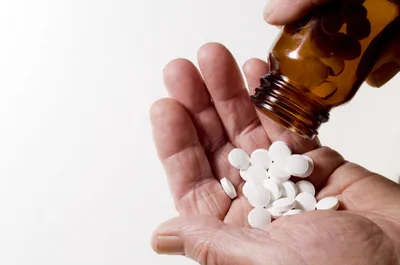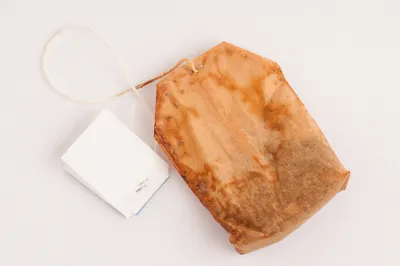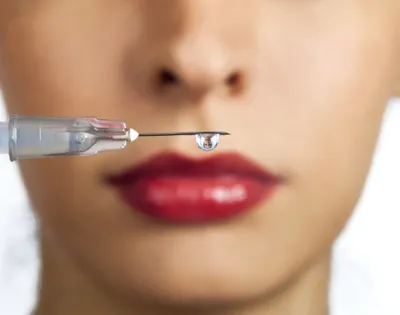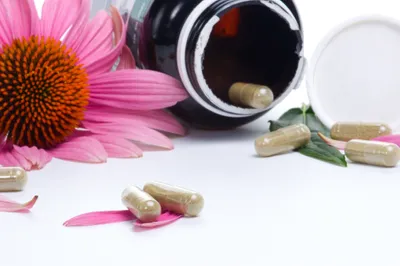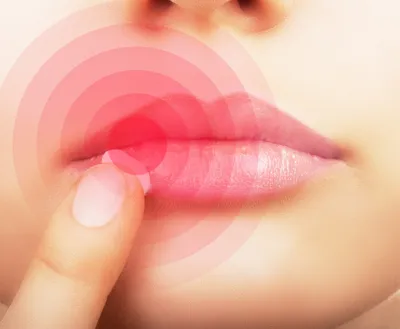No, not another cold sore! This is my typical exclamation when I feel that telltale tingling—most often on my lips or around my mouth. I know it’s a matter of days before the imminent arrival of an embarrassing fluid-filled blister, followed by the dreaded and painful oozing, bursting, and unsightly crust formation. However, if you suffer from herpes simplex virus Type 1, like me, you’re always worried about the next outbreak. It can come on suddenly and at the worst of times in the wake of too much sunlight, stress, lack of sleep, or even during your period.
Luckily, after dealing with cold sores for years, I’ve know that it’s vital to have a few tried and true cold sore remedies on hand…
1. Ice and Heat
Researchers at the Milton S. Hershey Medical Center at Pennsylvania State University, recommend alternating heat and cold to lessen the pain of cold sore blisters and also to reduce swelling.
You can either apply an ice cube directly to the cold sore or apply a heat compress followed by a cold compress (or frozen cloth) to the area. Research shows that when cold and heat are applied early enough (at the very first sign of a cold sore) patients often get a smaller blister than usual.
2. Aspirin
In addition to reducing the pain and throb of a cold sore, aspirin (or ASA) is also often recommended by medical professionals to quicken the healing time of a rather unsightly blister.
In fact, a research study featured in the journal, Annals of Internal Medicine, prescribes 125-milligrams of aspirin daily to reduce an active herpes simplex virus Type 1 infection by half. Obviously, aspirin is best taken at the first sign of an outbreak.
3. Cold Tea Bag
Similar to a cold compress, a soggy, chilly tea bag harnesses a lot of medicinal promise for cold sore sufferers. In fact, Dr. David Rakel, a professor at the University of Wisconsin and author of the book, Integrative Medicine, claims that the flavonoids in tea can hamper the growth of the herpes simplex virus.
Tea applied as a cold compress directly to cold sores for 15- to 20-minutes has also been shown to lessen inflammation, redness, and restore tissue damage caused by herpes simplex virus Type 1.
4. Tea Tree Oil
Tea tree oil (or melaleuca) is derived from the Melaleuca alternifolia tree, which is native to Australia and New Zealand. The leaves are use to make an essential oil with a strong camphoraceous odor and pale yellow. The oil is often used topically to treat a variety of skin conditions—from acne to cold sores—due to its antiseptic benefits.
Although much debate still exists concerning the effectiveness of tea tree oil on cold sores, I personally find that it works for me to reduce the initial size of sores and speed healing. I dilute the pungent tea tree with an equal drop of olive oil and apply it directly to cold sores with a clean cotton pad or Q-tip.
5. Cortisone Injections
Although getting a needle is never a pleasant experience—neither is walking around for days, or weeks, with a cold sore. This is why New York-based dermatologist, Dr. David Colbert, often recommends cortisone injections.
Of course these injections are highly diluted cortisone that are inserted directly into the cold sore. Understandably painful, cortisone injections definitely aren’t for everyone. However, Dr. Colbert claims the injections do reduce cold sore inflammation very fast if administered early enough.
6. Echinacea
We often pop Echinacea at the first sign of a stuffy nose or sore throat, but it turns out that the herb can also effectively reduce the duration of a cold sore—or if taken early—prevent one altogether.
According to a research report published in the Journal of Medical Virology, patients who took a 300-milligram capsule of Echinacea four times every day during a cold sore outbreak experienced faster healing times. After all, Echinacea is well-known for its immune-boosting and virus-eradicating properties.
7. Zinc Oxide
A body of research from the University of Maryland Medical Center shows that zinc oxide may block the replication of herpes simplex virus Type 1 (HSV). While a test tube study found that zinc was successful against fighting both HSV-1 and HSV-2.
A smaller, participant-based study (also from the University of Maryland Medical Center) found that patients who applied zinc oxide cream directly to cold sores experienced faster healing, reduced symptoms, and smaller lesions vs. those who applied a placebo cream.
8. Avoid L-Arginine-Rich Foods
Essential amino acids are often touted as vital to our health and wellness. However, if you suffer from cold sores due to herpes simplex virus Type 1, the worst thing you can do is consume foods rich in the amino acid, l-arginine.
Medical research shows that herpes virus (both Type 1 and Type 2) require l-arginine to live and flourish. To avoid a nasty cold sore outbreak, experts from the University of Maryland Medical Center recommend avoiding all l-arginine-rich foods—including chocolate, beer, cola, gelatin, carob, wheat germ, sesame seeds, coconut meat, white and wheat flour, walnuts, peanuts, almonds, cashews, pecans, and oats.

